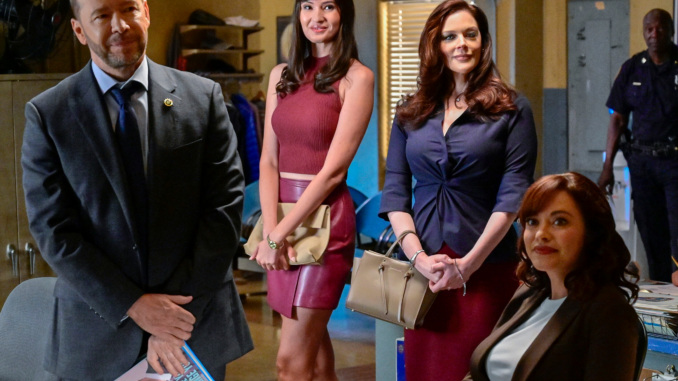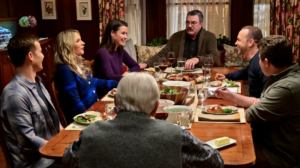
Why Blue Bloods Ends With Frank Reagan Without Romantic Partner Explained By Showrunner
The Complex Decision Behind Frank Reagan’s Storyline
The long-running CBS crime drama Blue Bloods has captivated viewers for over a decade with its portrayal of the Reagan family, a dedicated law enforcement family in New York City. However, one of the most notable aspects of the series, particularly in its final seasons, is the absence of a romantic partner for Frank Reagan, the head of the family, played by Tom Selleck. Many fans have speculated about the reasons behind this decision, but it was ultimately a deliberate choice by the show’s creators and showrunner.
In a recent interview, Blue Bloods showrunner Kevin Wade explained the creative decision to keep Frank Reagan without a romantic partner, despite the obvious opportunities for romantic storylines throughout the series. While the character had been romantically involved in the past, including a significant relationship with his wife who had passed away before the series began, he never pursued any new long-term relationships during the course of the show. This choice has been both puzzling and intriguing for fans, but Wade offered some insight into why it worked for Frank’s character and the overall narrative.

The Legacy of Frank Reagan and His Family
At the core of Blue Bloods, the Reagan family’s devotion to duty, honor, and justice has always been the focal point. Frank Reagan, as the commissioner of the NYPD, is the central figure in this family, leading not only his officers but also his children, Danny, Erin, and Jamie. His relationship with his children is one of mutual respect and trust, with family dinners at the Reagan home offering a consistent backdrop to their lives. This family dynamic has become one of the most beloved aspects of the show.
For Frank, his love for his children and his career in law enforcement have always taken precedence over his personal life. Wade noted that Frank’s role as a father and leader meant that pursuing a romantic relationship would likely be in conflict with the show’s portrayal of his character. Frank’s commitment to his job and family was seen as his primary focus, and introducing a romantic subplot could distract from the central narrative of the Reagan family’s relationships and their shared mission.
Realism and Character Consistency
Wade also explained that the decision to keep Frank single was rooted in realism. In real life, people who experience significant loss or trauma, like Frank did with the death of his wife, often struggle to find new romantic connections. Frank’s choice not to pursue a romantic relationship in his later years was a reflection of his emotional journey. The showrunner emphasized that Frank’s focus on his work and family wasn’t a reflection of his inability to love again, but rather an authentic depiction of how someone might channel their grief and energy into their existing relationships and responsibilities.
Additionally, by not introducing a romantic partner for Frank, Blue Bloods was able to avoid the typical “will they, won’t they” drama that so many other shows rely on. Instead, it allowed Frank’s character to remain a steady, reliable figure, unencumbered by the complications that come with romantic entanglements. For Wade, this was an important choice that allowed Frank’s character to stay grounded and true to his role as a father and leader.
Conclusion
The absence of a romantic partner for Frank Reagan in Blue Bloods was a carefully thought-out decision that served both the character’s development and the overall tone of the show. By focusing on Frank’s relationships with his children, his colleagues, and his community, Blue Bloods was able to stay true to its core values of family, duty, and service. As the show reaches its conclusion, this choice emphasizes the strength of Frank’s character and his unwavering commitment to those he loves, without the need for a romantic subplot.